The DO-IT Center
DO-IT 2018 Milestones
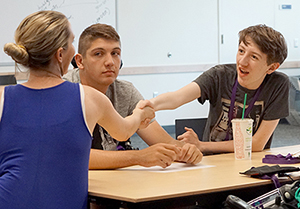
7 New Grants
DO-IT was awarded funding for seven new projects. The National Science Foundation funded four: A supplement to our existing AccessComputing project to include students with disabilities in computing instruction and research, AccessCyberlearning 2.0 to conduct exploratory research to inform future digital learning, and AccessINCLUDES and ERC-INCLUDES to prepare INCLUDES broadening participation projects to address disability in their research and product development. The DO-IT IDEAS project, funded by UW, develops and supports a cohort of students from all three UW campuses; a grant from the Port Gamble S’Klallam Tribe provides outreach in the North Kitsap area; and DO-IT ADEPT, funded by the United Engineering Foundation, will build a national network of engineering faculty and students to advance disability-related issues.
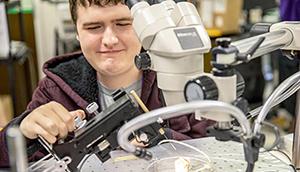
60+ Internships
DO-IT participants engaged in over 60 internships, with a majority being paid internships in STEM fields. Locations included Microsoft, Facebook, Amazon, Starbucks, Qualcomm, Bank of America, and a number of postsecondary institutions including the UW. Internships help students learn about career fields, practice requesting accommodations, apply academic learning to real-world environments, build their professional network, and access state-of-the-art equipment.
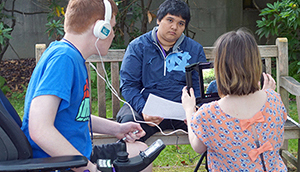
1000+ Participants
DO-IT serves over 1000 students with disabilities in our programs. Activities in 2018 included workshops, networking events, mentoring activities, disability advocacy events, and our signature Summer Study program for DO-IT Scholars. Students build resume and job seeking skills, learn how to be successful in college, gain access to assistive technology, and so much more.
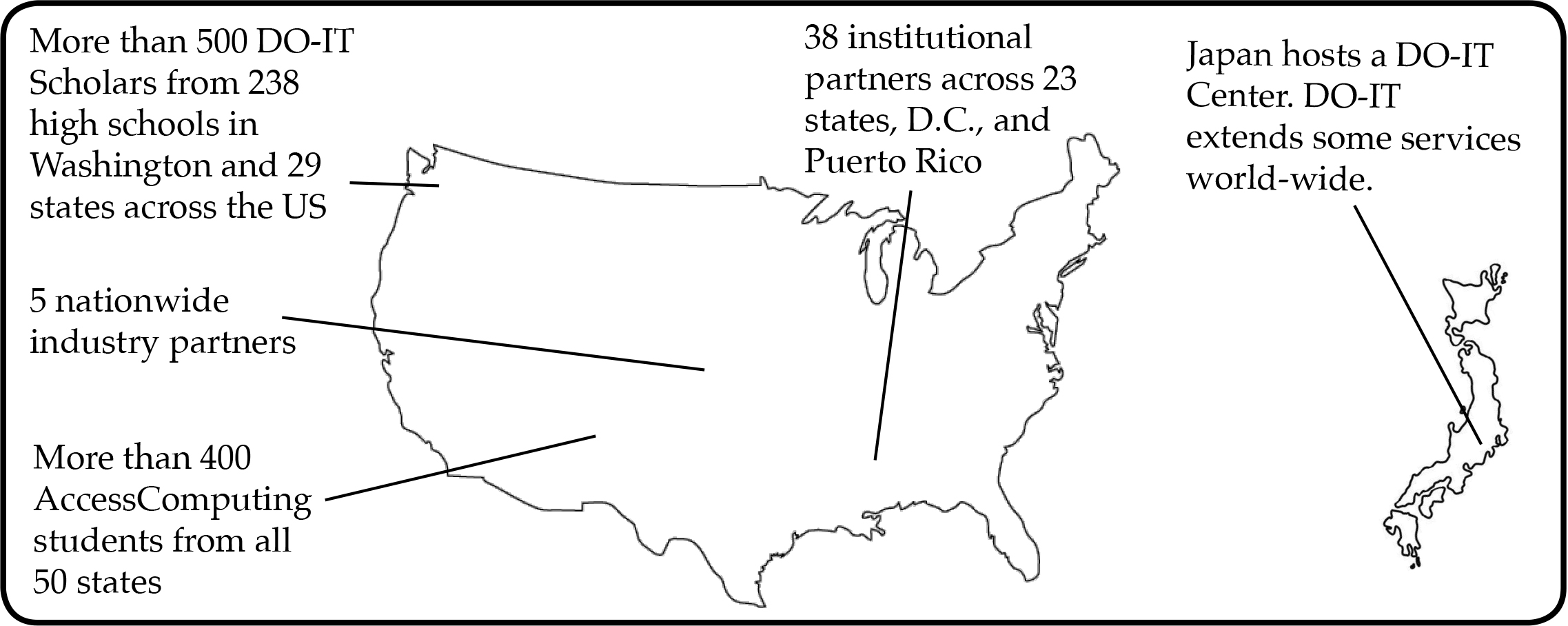
Participant Spotlights
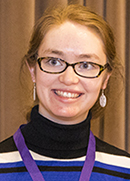
Hannah Werbel, University of Washington
Hannah joined the DO-IT Scholars program in high school. Hannah has received support from DO-IT throughout her college education. Hannah reports that it is encouraging to hear from people who have dealt with similar challenges in transition to college and schoolwork. She has also developed a strong professional network as well as many close friends through DO-IT. Hannah earned the freshman UW President’s Medal for 2015-2016 and the Boas Scholarship for Physics for 2017-2018. Hannah states “I am so grateful for all that DO-IT has done to support me throughout my college years.”
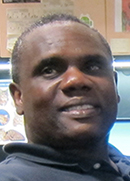
Vincent Martin, Georgia Institute of Technology
After realizing he was faced with a significant eye disease, Vincent began to use his technical and engineering skills to create, modify, and utilize assistive technology. Now Vincent is a PhD student in human-centered computing. For much of his post secondary education as a person with a disability, he was mostly unaware of others with disabilities pursuing similar goals. Vincent shares “DO-IT offered a level of camaraderie that is not apparent anywhere else. My stress related to the difficulties of unseen obstacles was mostly mitigated by the depth and breadth of knowledge shared amongst other DO-IT members.”
DO-IT 2018 Highlights
|
Hundreds |
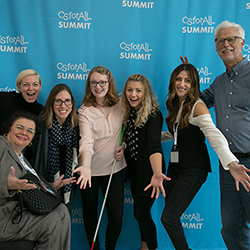
|
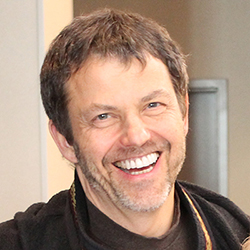
|
DO-IT partner Howard Kramer awarded with a Capacity Building Award |
|
Civil rights leader |
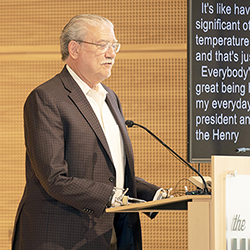
|
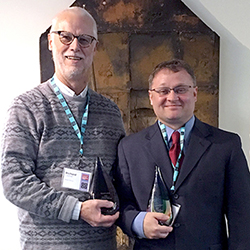
|
AccessCSforAll leaders Richard Ladner and Andreas Stefik win Champions of Change Computer Science Awards |